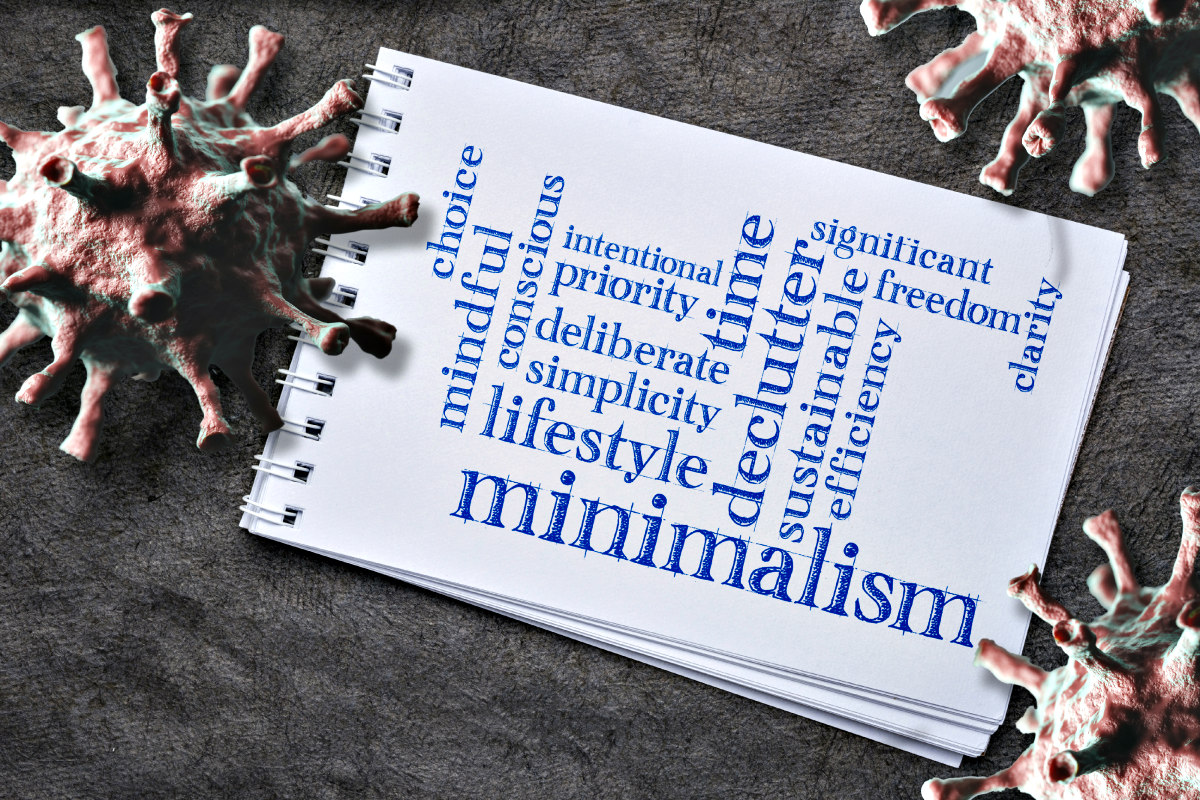Creating Calm in this COVID Chaos

While I am writing this the end of April, we have been social distancing or self-quarantining since sometime in mid-March. We might have done our traditional “spring cleaning”, but as we continue through the summer, we may be looking around our homes and thinking with all this time, it might be time to really get organized. It can be overwhelming to look at your home and the “stuff” you have accumulated over months, years, a lifetime, but there is also a rejuvenation one can experience in life by letting go of stuff and keeping your home with more intention.
There are many approaches to organization and current trends support this minimalist approach which is all about living with less, including fewer financial burdens and unnecessary expenses. Minimalists embrace the philosophy of less is more, getting rid of excess possessions, having less financial burden, leaving room to focus on relationships, and living life based on experiences rather than physical possessions.
Even if this type of lifestyle is not for you, some aspects are easily implemented, such as getting rid of clutter that adds no value to your life. Some approaches can even help you slim down your possessions while also making money. Minimalists Joshua Fields Millburn and Ryan Nicodemus have helped minimalism grow across the nation. They ask people to implement the 90/90 rule. “Look at a possession. Pick something. Anything. Have you used it in the last 90 days? If you haven’t, will you use it in the next 90? If not, then it’s okay to let go.” (Murray, C. 2020)
Some opposition of minimalism suggests that it is an “upper class” approach and directs us into the psychology behind owning things. It is more difficult to let go of things if you grew up poor as owning things holds value in your mind. Letting go of possessions is not only wasteful but having less is not a desirable state. Often great amounts of time have been spent to accumulate and in time could lead to what is known as hoarding disorder. “It feels really good to acquire things. We essentially get a shot of dopamine and other feel-good chemicals every time we get something that we view as precious.” (Pike, 2020).
Most people will find themselves on this spectrum between the two and can take a variety of approaches to getting organized. A first step can be to look at the space, assess how it is working for you now in its current state, and what you would like it to do or how it would function better. Some simple organizing principles by Certified Professional Organizer (CPO), Sara Pederson:
• Keep similar items together in containers
• Assign a home for every object
• Put away what you take out
• Label things
• Daily, weekly, monthly, and annual maintenance
• Abide by the in/out rule (buy something new, discard something old).
If you find yourself feeling overwhelmed by your belongings, difficulties in letting things go, if your “stuff” is causing problems between you and your loved ones and you are unsure what to do to get control of your situation, it is ok to ask for help. Doing a de-clutter challenge with a friend may be enough support, while others may need professional assistance from a CPO, and if you need further assistance or feel that your need to collect treasures is beyond your control it may help to begin exploring this with a therapist. “Most people would take even a 10% decrease in the clutter or in the chaos and fighting that can occur.” Pike (2020)
Works Cited:
Murray, C. (2020, March 20). Minimalist living: is minimalisms just a fad? or can it really help to solve all your financial problems? Retrieved from https://www.moneyunder30.com/minimalist-living
Pederson,S. (2008) Born to organize: everything you need to know about a career as a professional organizer.
Pike, J. (2020, January). https://www.apa/research/action/speaking-of-psychology/hoarding. Retrieved from www.apa.org.
Tags: becoming a minimalist during COVID, Keeping your "stuff" with intention, letting go of stuff, organizing during the pandemicABOUT THE AUTHOR

Heather Rankin
Licensed Independent Mental Health Practitioner
LATEST ARTICLES BY Heather Rankin
Subscribe today
Sign up to receive the latest mental health tips and inspiration